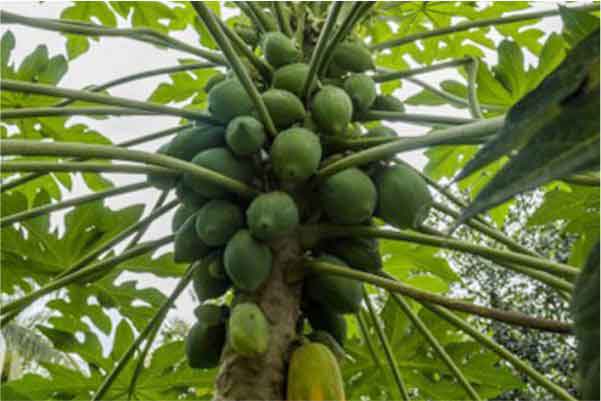

01/09/2022

The term thrombocytopenia has a Greek origin, which is basically a mix of three different words: 'thrombo', which means blood clotting, ‘cyto’ stands for cells, and 'penia' is a word which translates to a deficiency of some kind. So the word primarily means a deficiency of cells that are responsible for clotting of blood. These colourless blood cells, also known as platelets or thrombocytes, are known to stick together in order to allow clotting and avoid any excessive or incessant bleeding. In case of deficiency, the process of clotting tends to slow down.
Thrombocytopenia, therefore, is a serious condition which arises when the body has less than the required number of platelets in the circulating blood. Ideally, for a healthy person, the number of platelets ranges somewhere between 1, 50, 000 – 4, 50, 000 per every micro litre of blood. In case of thrombocytopenia, these start decreasing in number. The matter becomes of extreme concern when their number is abnormally low, say under 50, 000 per micro litre of blood.
Chemo-induced platelet deficiency
The reason behind a reduced number of platelets could be either that our body is unable to make enough of these, or that the platelets are there but are trapped by an enlarged spleen. It could also be because the platelets are getting destroyed or broken down at a faster rate compared to their rate of formation, owing to some underlying health condition such as cancer, leukaemia, anaemia, excessive consumption of alcohol, etc.
The condition of thrombocytopenia, in fact, is especially common among cancer patients. A low platelet count usually surfaces as a side effect of chemotherapy or radiation-based treatment. Chemotherapy helps in destroying the cancer cells and causes their rapid growth to slow down. But at the same time it could also induce thrombocytopenia. The type as well as the dose of chemotherapy also affects the platelet count in the blood. It is important to manage and cure this chemo-induced thrombocytopenia because, if the platelet count continues to drop, it can expose the patient to a number of problems, such as spontaneous bleeding or even a haemorrhage which can sometimes be downright fatal. At times, the severity of thrombocytopenia might even require an altogether discontinuation of chemotherapy, thereby reducing the patient’s chances of cure.
Promising effect of papaya leaf extract
Platelet transfusion is, of course, one of the options to bring up the platelet count. But there is a natural alternative that can help restore the platelets in our blood. It is taking the papaya leaf extract, something that has long been advocated by the traditional system of medication the world over to cure blood-disorders.
Carica papaya surely offers a number of health benefits. It regulates the cholesterol levels, improves digestion, boosts our immunity, aids in weight loss, protects skin against damage, etc. This plant contains a variety of active compounds such as α-tocopherol, flavonoids, ascorbic acid, phenolic acids, glucosinolates and cyanogenic glycosides. Besides, it is loaded with the goodness of vitamin c, fibre as well as antioxidants. Papaya leaves, however, bear more significance in the world of healthcare, since these contain various health boosting compounds that are loaded with significant therapeutic potential. Papain and chymopapain are two main ingredients found in the papaya leaf extract, that are known for their anti-inflammatory, antioxidant, would healing, immune-modulatory as well as their overall healing properties. There is no wonder as to why this particular extract has been used in various traditional systems of medications, including the Ayurveda, for centuries together.
Chemo and Carica papaya
In case of chemo-induced thrombocytopenia, the papaya leaf extract is gaining an increasing popularity. The consumption of fresh papaya leaf juice significantly accelerates the production of platelets in our body, and therefore, speeds up the recovery process. In fact, it starts to show effect as early as within 48 to 72 hours of consumption. Therefore, the risk of thrombocytopenia is reduced and chemotherapy can be continued without any concerns.
Papaya leaves work by boosting the process of thrombopoeisis, which is responsible for the very production of platelets in our blood. In fact, the freshly procured extract not only increases the platelets but also the RBC count in the blood. While its oral consumption is incredibly effective, it also shows immediate signs of improvement when consumed on regular basis, and is absolutely safe from any side effects. Cancer patients can use it as a complementary source of medication, as this juice is absolutely safe, affordable and easily available source of gaining back the platelets as well as good health
Sanat Uplat
Uplat, the natural platelet booster from the house of Sanat products ltd, is readily indicated in case of thrombocytopenia which could emerge due to chemotherapy and also in the case of ailments like dengue, malaria / viral, liver cirrhosis, hepatitis b, itp and others. Two capsules are recommended once (stat) in a day if the platelet count is above 50,000 and two capsules in the morning & two in evening if platelet count is below 50,000.
Author and Speaker
Copyright © 2021.Dr. Willmar Schwabe India Pvt. Ltd.. All Rights Reserved